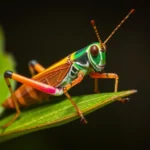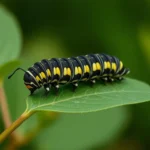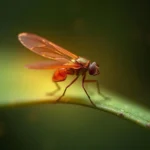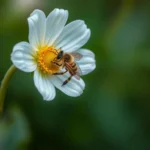The Mason Bee: A Symbol of Hard Work and Community
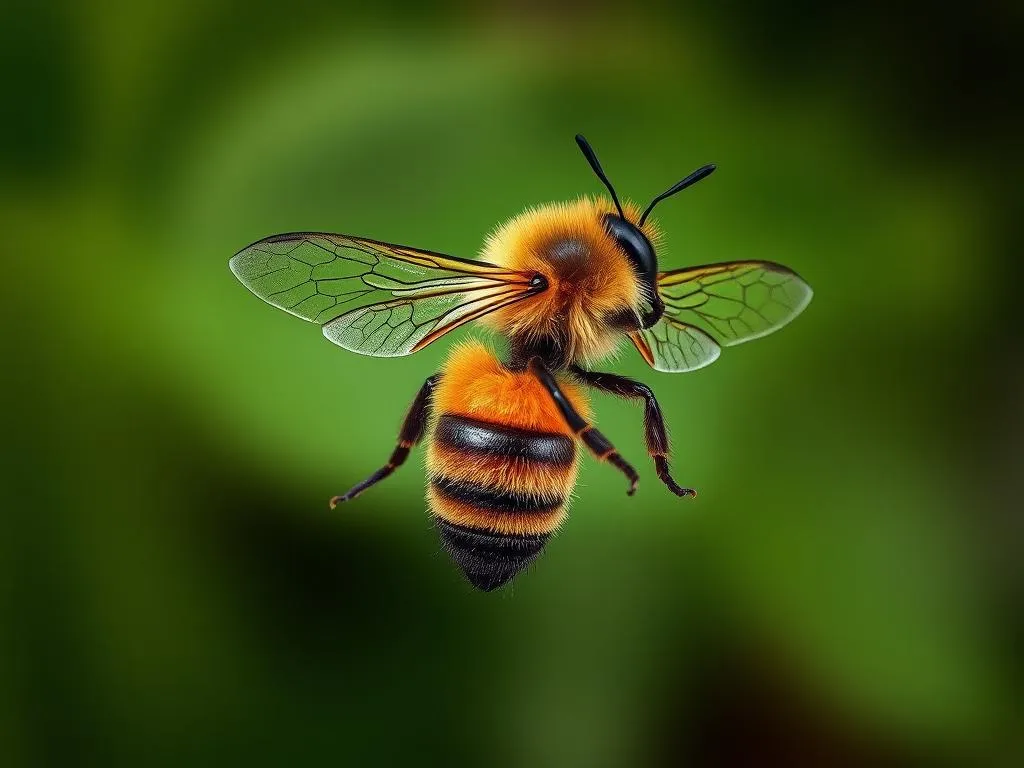
Disclaimer: Some images on this website are AI-generated artworks and may not accurately represent real animals.
Understanding the Mason Bee
Introduction to Mason Bees
Mason bees, scientifically known as Osmia, are fascinating creatures that belong to the family Megachilidae. Unlike their more famous counterparts, honeybees, mason bees are solitary insects. They are known for their remarkable ability to build nests in small cavities, often using mud or other natural materials to seal their homes. This unique behavior has earned them the name “mason” bee.
Mason bees are smaller than honeybees, with an average length of 8 to 12 millimeters. They sport a robust body covered in fine hairs, which aids in pollen collection. Their non-aggressive nature and solitary lifestyle make them less of a risk to humans, thus contributing to their appeal in home gardening and sustainable agriculture.
Differences Between Mason Bees and Honeybees
While both mason bees and honeybees play crucial roles in pollination, their lifestyles differ significantly. Honeybees are social insects that live in large colonies, with a highly structured social order, including a queen, workers, and drones. In contrast, mason bees are solitary; each female constructs her own nest and raises her offspring independently.
Another key difference lies in their nesting habits. Honeybees build hives, while mason bees prefer to nest in small holes or cavities, such as those found in wood or plant stems. Their nesting behavior reflects their preference for solitary living, but it also underscores their commitment to community through their essential role in pollination.
Life Cycle and Habitat
Mason bees follow a fascinating life cycle. Female mason bees emerge in early spring, ready to mate and begin the nesting process. They gather pollen and nectar, which they use to create food provisions for their larvae. After laying eggs in the nest, they seal each chamber with mud, ensuring a safe environment for the developing larvae.
Mason bees thrive in various habitats, including gardens, meadows, and orchards. They prefer areas with abundant flowering plants, as these provide the necessary resources for their survival. The importance of preserving natural habitats cannot be overstated; the decline of such areas directly impacts mason bee populations.
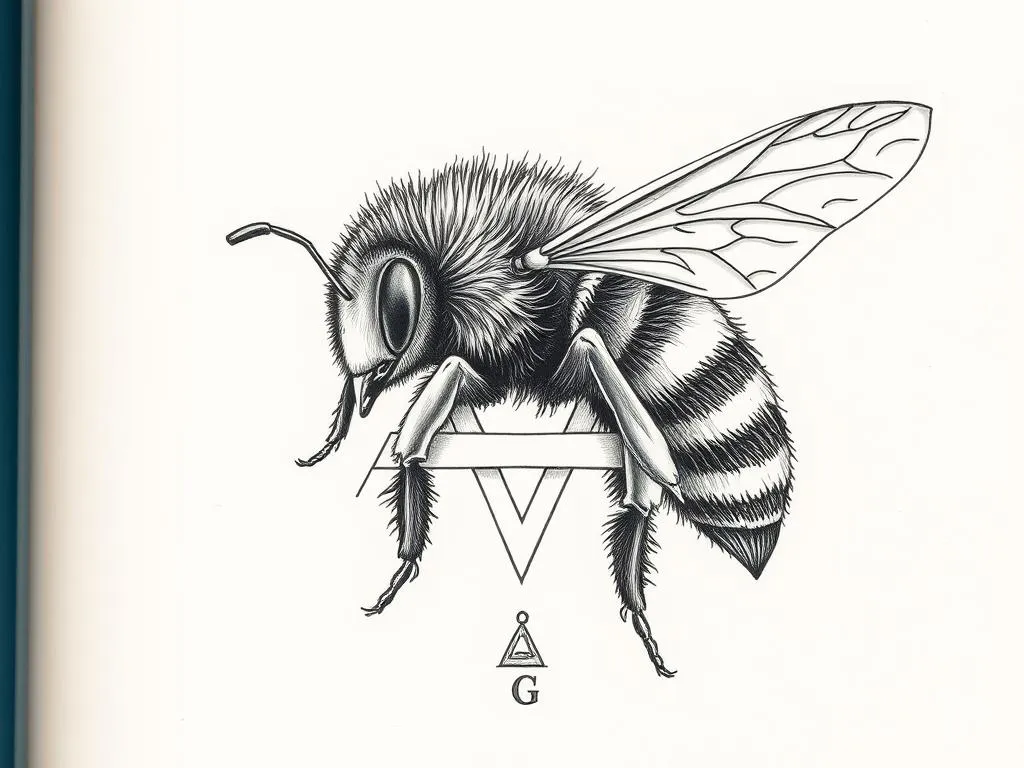
Symbolism & Spiritual Meaning
Hard Work and Diligence
The mason bee symbolism and meaning is deeply intertwined with the concepts of hard work and diligence. These industrious insects are known for their tireless efforts in gathering pollen and constructing their nests. Their commitment to their tasks serves as a powerful reminder of the value of perseverance in our own lives.
Observing a mason bee at work can inspire us to adopt a similar work ethic. Their nesting behaviors highlight the importance of dedicated effort in achieving our goals. Just as these bees meticulously gather resources and build their homes, we too can learn to approach our tasks with persistence and dedication.
Community and Cooperation
Despite their solitary nature, mason bees contribute significantly to ecosystem health, embodying the spirit of community and cooperation. Their role as pollinators is vital; they help fertilize plants, which in turn sustains other life forms within the ecosystem. This interconnectedness reminds us that even those who appear isolated can play a significant role in the greater community.
The symbolism of mason bees extends to the idea of nurturing relationships and fostering connections. While they may not live in colonies, their actions impact the broader environment, highlighting the importance of individual contributions to collective well-being.
Transformation and Growth
Mason bees undergo a remarkable transformation from larva to adult, symbolizing personal growth and change. This metamorphosis serves as a metaphor for our own life journeys, illustrating how we can evolve and adapt through different stages of life.
The symbolism of transformation found in the life cycle of mason bees encourages us to embrace change. Just as these bees navigate their development, we too can learn to embrace the challenges and opportunities that come our way, leading to personal growth and fulfillment.
Mason Bees in Dreams
Interpretations of Dreaming About Mason Bees
Dreaming about mason bees can carry significant meaning, often reflecting themes of hard work and effort in waking life. Such dreams may serve as reminders to focus on our goals, urging us to embrace the industriousness embodied by these insects.
Additionally, dreams featuring mason bees can signify the potential for personal growth and transformation. Just as the bees undergo significant changes in their life cycle, dreamers may find themselves at a crossroads, with the opportunity to evolve and adapt to new circumstances.
Symbolic Messages
Dreams about mason bees can also reflect our connections to community and relationships. They may urge the dreamer to consider the importance of nurturing their environment and the people within it. This symbolism can serve as a gentle reminder to invest time and energy into building supportive networks.
| Dream Theme | Symbolic Interpretation |
|---|---|
| Hard Work | Focus on perseverance and dedication |
| Personal Growth | Embrace change and opportunities |
| Community Ties | Nurture relationships and connections |
Modern Interpretations
Cultural Significance
Mason bees have woven their way into various cultural narratives, often serving as symbols of diligence and community spirit in folklore and mythology. Their industrious nature has inspired stories that emphasize the importance of hard work and cooperation in overcoming challenges.
In contemporary society, mason bees have gained recognition within environmental movements. Their role as pollinators highlights the need for sustainable practices and biodiversity. As individuals become more aware of their ecological impact, the symbolism of mason bees serves as a reminder of our responsibility to protect the environment.
Mason Bees and Sustainability
The mason bee symbolism and meaning resonates strongly with modern ecological practices. As urbanization expands, the importance of creating bee-friendly habitats becomes increasingly crucial. Mason bees can thrive in urban gardens, making them essential allies in promoting sustainability and biodiversity.
Encouraging urban gardening not only supports mason bee populations but also fosters a greater appreciation for nature. By creating bee-friendly environments, individuals can contribute to the health of local ecosystems while embracing the industrious spirit of mason bees.
Key Takeaways
- Mason bees symbolize hard work and diligence, inspiring us to approach our tasks with persistence.
- Their solitary yet community-focused nature highlights the importance of individual contributions to collective health.
- The transformation from larva to adult bee serves as a metaphor for personal growth and embracing change.
- Dreams about mason bees can reflect our efforts, personal growth, and connections to community.
- Mason bees play a significant role in modern environmental movements, emphasizing the need for sustainability.
Conclusion
The mason bee stands as a powerful symbol of hard work, community, and transformation. Its significance in nature goes beyond mere pollination; it encapsulates the essence of perseverance and the interconnectedness of life. By fostering a greater appreciation for these remarkable insects, we can learn valuable lessons that resonate in our daily lives.
In a world where the pace of life often distracts us from nature, the mason bee invites us to reconnect with the environment and appreciate its intricacies. As we reflect on the symbolism and meaning of mason bees, we are encouraged to embrace diligence, nurture our relationships, and celebrate the transformations that life presents.
